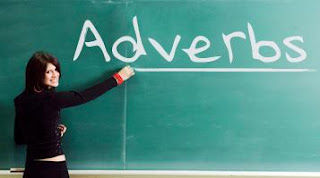Adverbs in English - Shortcut Rules
What are Adverbs?
An adverb is a word that tells us more about a verb. It "qualifies" or
"modifies" a verb. Lets try to understand this with a small example.
Adverb Example:
Sunaina walks gracefully (The word 'gracefully' is an adverb. It modifies the verb 'to walk'.)
Now lets have a look at some important rules of Adverbs.
Rule 1 : The adverbs 'too much' is used with nouns and 'much too' is used with adjectives.
- Too much pain / Too much insincerity (Nouns)
- Much too painful / much too careless (Adjectives)
Examples :
- His failure is too much painful for me ☓
- His failure is much too painful for me ✔
- His wife's rude behavior gives him much too pain ☓
- His wife's rude behavior gives him too much pain ✔
Rule 2 : Before the word 'Enough' an adjective under positive form should be used.
- He is more intelligent enough to follow you. ☓
- He is intelligent enough to follow you. ✔
- She is enough lucky to get the job. ☓
- She lucky enough to get the job. ✔
Rule 3 : The adverb quite ('quite means perfectly/ completely) should not be used with the adjective 'Handsome'.
- He is quite handsome. ☓
- He is very handsome. ✔
Rule 4 : Late / Lately. The adverb 'late' indicates time and lately means recently.
- He was punished for coming lately. ☓
- He was punished for coming late. ✔
Rule 5 : When we begin a sentence with 'seldom / never / hardly /
rarely / scarcely / barely / neither / never, the rule of inversion
should be applied (i.e.,) an auxiliary verb is used before the subject.
- Hardly he goes to school. ☓
- Hardly does he go to school. ✔
- Seldom I got to films. ☓
- Seldom do I got to films. ✔
- No sooner the school bell rings than all the boys go to their class rooms. ☓
- No sooner does the school bell ring, than all the boys go to their class rooms.
After Only + adverbial expression.
- Only by working hard, he got success. ☓
- Only by working hard, did he get success. ✔
Not only but also
- Not only she reads but also she writes. ☓
- Not only does she read but also writes. ✔
- There were no less than forty people who were killed in the accident. ☓
- No fewer than forty people were killed in accident. ✔
- He called me as a fool ☓
- He called me a fool. ✔
- I always consider him as my brother. ☓
- I always consider him my brother. ✔
- I am very interested to play cricket. ☓
- I am much interested to play cricket. ✔
- He is very clever to understand it. ✔
- He is much clever to understand it. ☓
- It is very much better to stay here tonight. ✔











